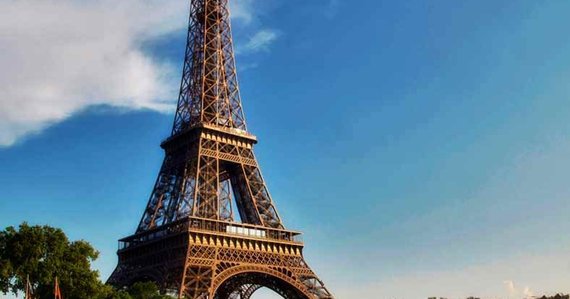
The world is aflame with contention right now.
There are stories of campus activism, racism, and free speech. There is tension between the Republican and Democratic parties, and tension within the Republican and Democratic parties, as candidates vie for the presidency. There is a continuous stream of news about terrorism in Paris, about how we should respond and who's to blame.
There are Facebook streams filled with provocative tweets, divisive headlines, opinion after opinion. There are refugees fleeing terror, wondering where they will be accepted. There are discussions of bigotry, of Islam, of Islamophobia, of the empathy gap between Paris and Beirut. There are airstrikes and talks of war. There is suspicion of the media's portrayal of recent events.
There is fear, arrogance, righteousness, sadness, and confusion, and everyone is shouting at each other.
How is one to navigate all of this and maintain sanity?
Let's start by slowing down and considering what is most important.
We're on the same side
Last week I followed a series of articles about campus activism at Yale and the University of Missouri, and I learned something applicable to all of the topics filling the airwaves.
Some articles made strong arguments for the activists' cause. Some agreed with the activists' cause but criticized their methods.
The most interesting thing about them was that they both agreed on the fundamental issue: that institutional racism exists and needs to be addressed. The authors should be allies, right?
But they refuted each other's arguments, and instead of standing together, each spent hundreds of words explaining why he was right. They ended up pitting each other as enemies, despite the fact that they agreed on the central issue.
This unintentional obfuscation is rampant in the media that we consume. That's not to say that the authors' points had no merit. But their priorities were jumbled.
What should we prioritize?
It is easy to value the head over the heart. It's easy to dress our impulses, biases, and gut feelings with rhetoric and logic. Intuitive justifications are not considered as valid as rational ones.
Yet consider our decision-making. See if you can relate to this scenario: You have a huge, life-changing decision coming up. Maybe it's whether to leave your job, or to move across the country. You spend hours listing pros and cons, researching alternatives, weighing how each choice will affect every other area of your life, and at the end of the day, you have no idea what to do. After all this, you end up choosing one option simply because it felt more right than the other. The one you ended up choosing was also probably the one your gut told you to choose within a few seconds of becoming aware of the choice.
As much as we believe ourselves to be rational beings, we are not. Rationality is just one of the tools at our disposal. And it is an essential facet of being human. But we also dangerously fail to see that even our rationality is influenced by our moods, our unconscious minds, and our biases and prejudices. We use rationality to justify our worldviews, but we did not arrive at those worldviews rationally.
I point this out because we overestimate the importance and impact of wielding logical arguments in service of our beliefs. How do people change? It's rarely by a strong, well-structured argument. Beliefs are cemented in something a lot more stubborn than the rational, conscious mind.
In the case of the articles about campus activism, the ultimate goal behind the activism is to eliminate racism. But what's the goal behind the goal? In other words, why is it eliminating racism important? Because our brothers and sisters are crying out for inclusion and equality.
Why, then, did the authors emphasize minute differences rather than unity and solidarity?
It was tragic that the two authors disagreed so vehemently. The activist cause could have been strengthened and validated by putting aside their need to be right and speaking in unison for something they both agreed with anyway. This is a real life case of being so confounded by our thinking that it causes a real experience of separateness. All everyone wants, at the end of the day, is to be at peace together.
It's hard to give up our need to be right. It's rooted in ego, which needs to defend itself to persist. But that's where our battles should be fought -- within ourselves.
It all comes down to this fundamental question: how are we to treat others? When asked this question, the sage Ramana Maharshi responded, "There are no others."
Paris
How does this apply to Paris?
When we are faced with crisis, terror, and fear, we have a choice. It's so easy to forget that we have a choice, but we do. That choice is how we respond. We can respond by becoming suspicious of those who wear turbans, nervous in public places, or afraid a vast evil is coming to get us. And some politicians will use those fears to create public policy based on exclusion and prejudice. In other words, they will dress their fear with rationality, which only amplifies the negativity. Fear and separateness will only make the terrorists' goals closer to fruition.
Or, we can use these attacks as a reason to come together. Is this not what we all want, anyway? Perhaps the reason these attacks strike such fear and despair into our hearts is because they threaten to confirm our deeper fears: that we're not one, that we're not together, that we are alone in a harsh world.
Let's not give that fear a chance to take root and grow. Let's use this as a more urgent reason than ever to spread love. That is ultimately the best defense against terror.

